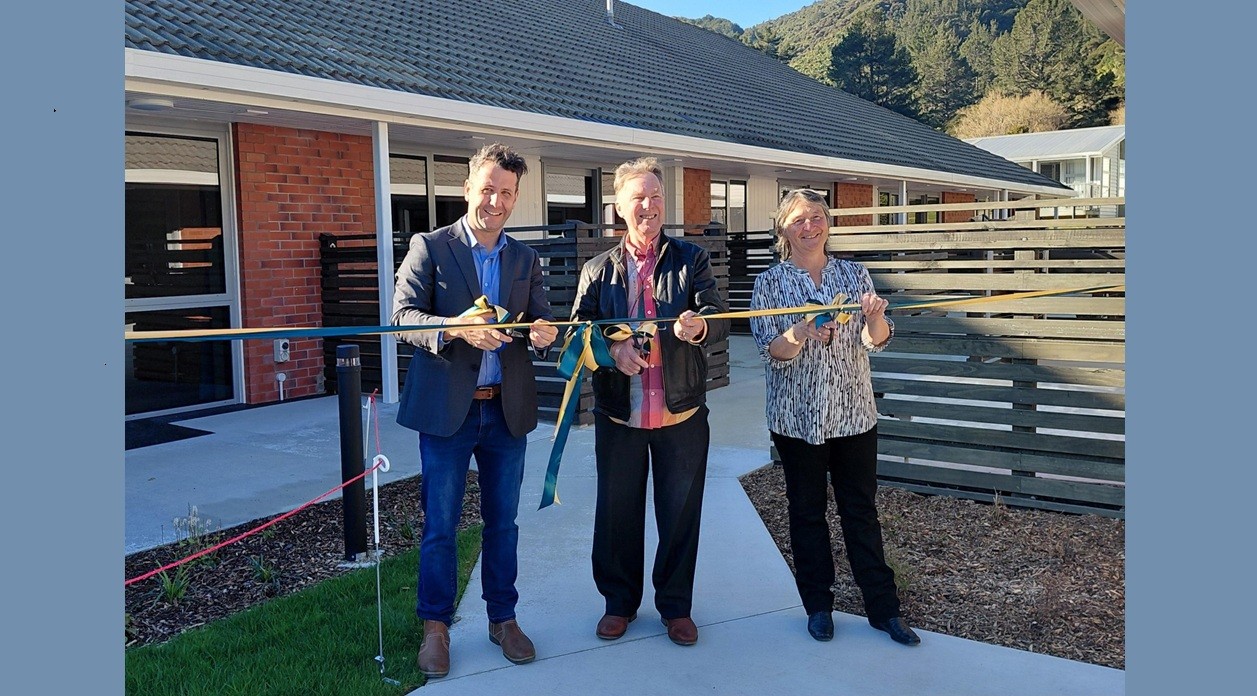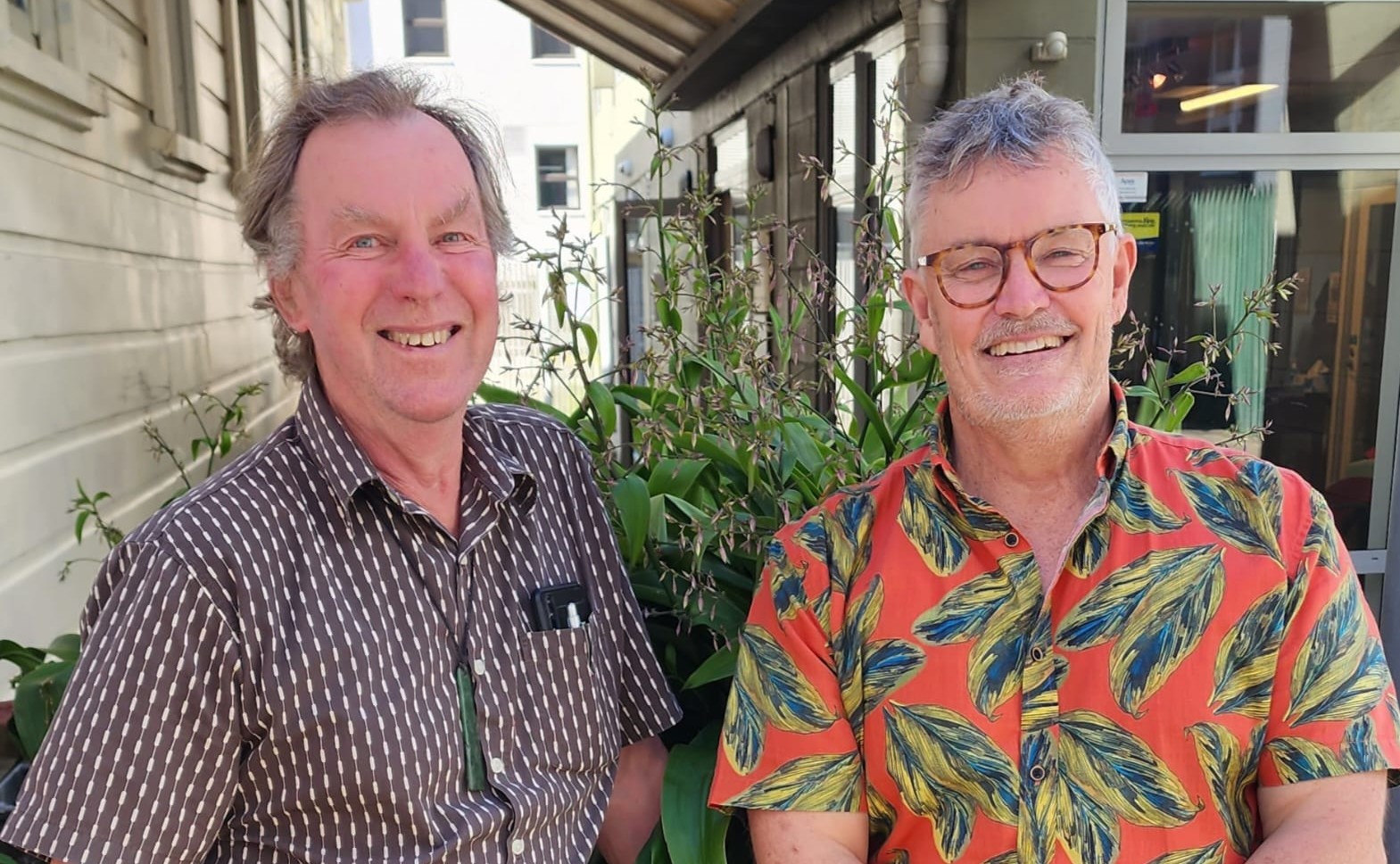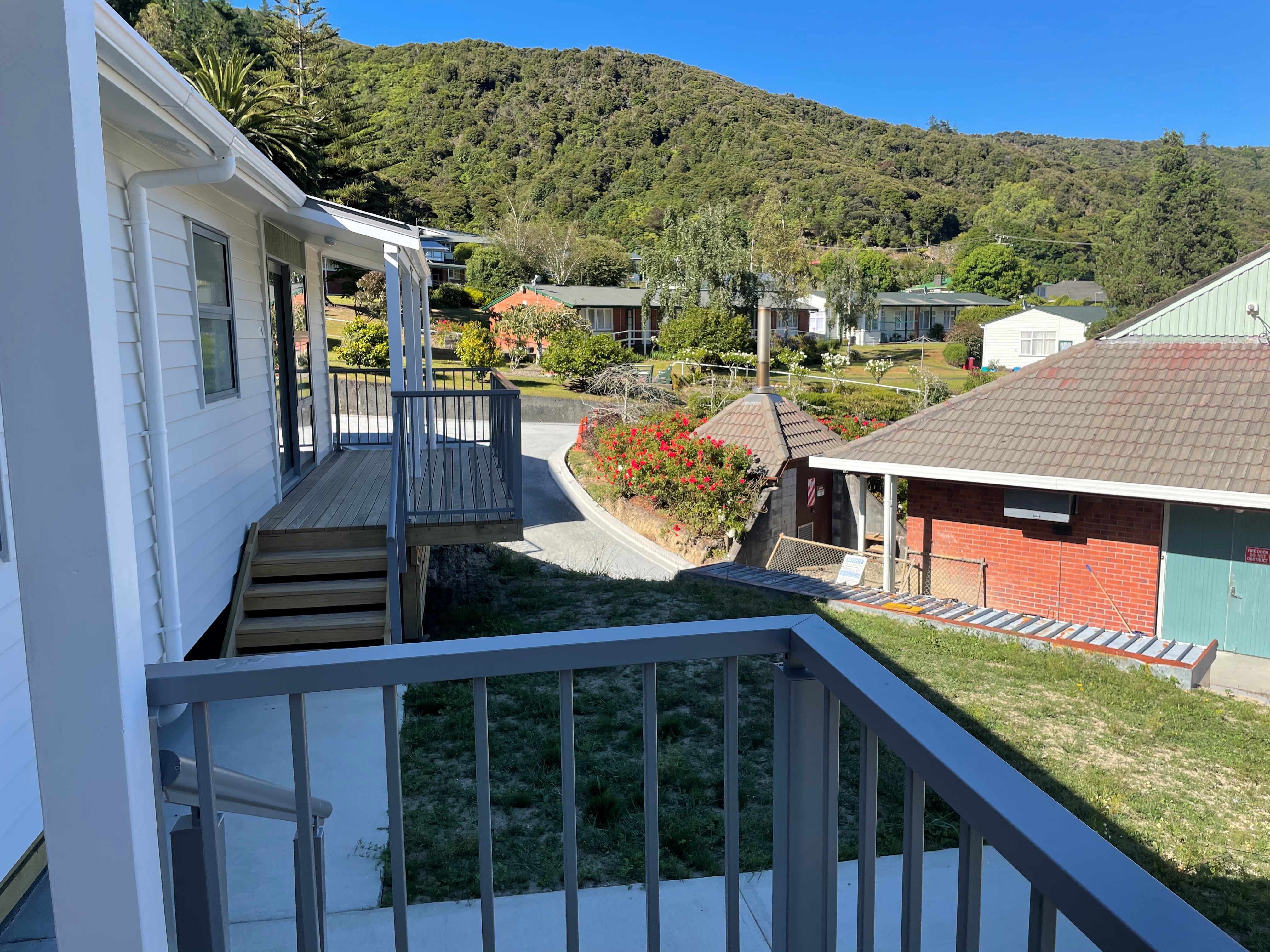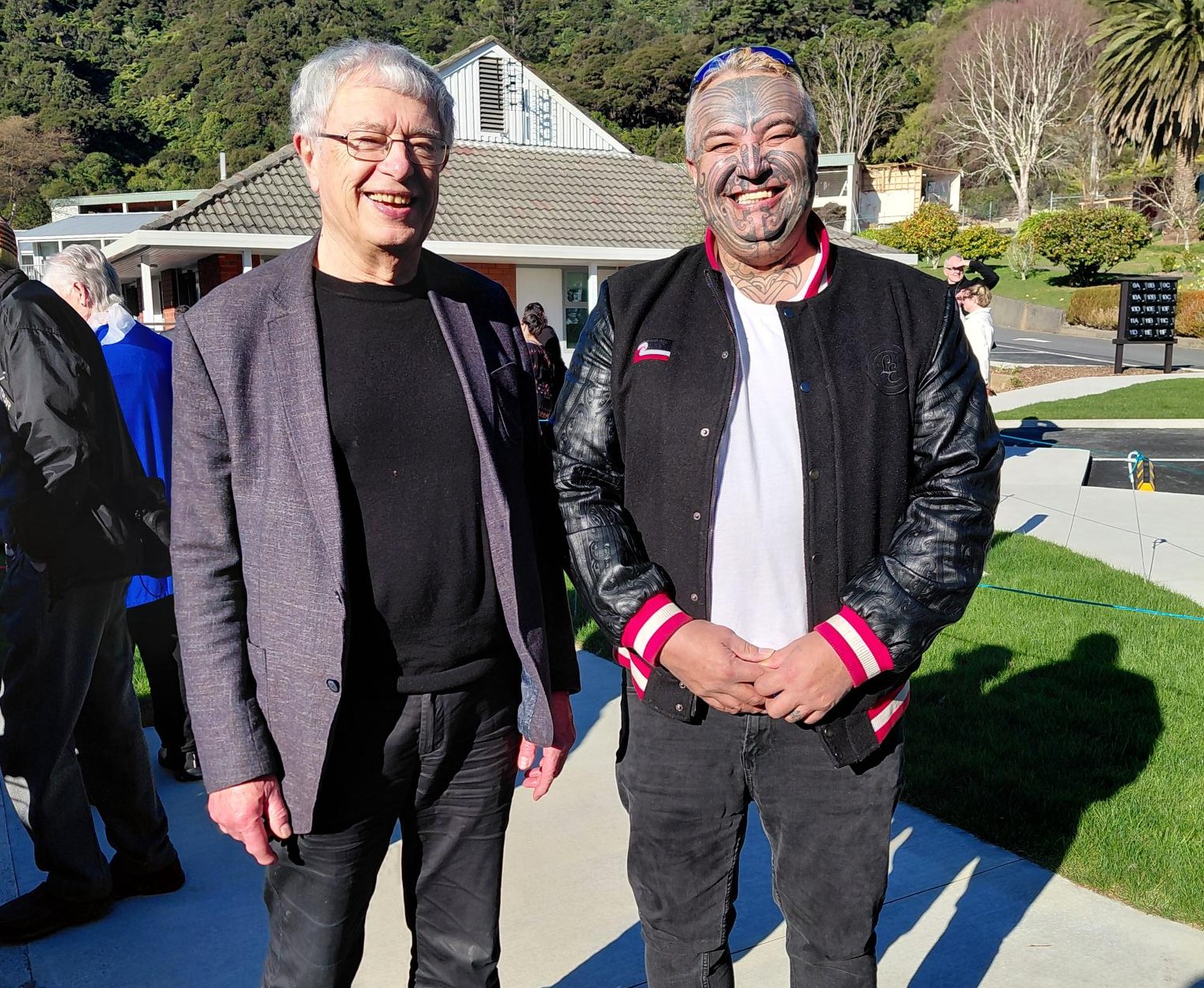
The interview first appeared in Touchstone, a Methodist Church publication.
If the local Baptist church had been closer to Peter Glensor’s childhood home in Upper Hutt he might never have become chair of the board of Wesley Community Action – a position from which he has just retired after being involved with the board for 25 years.
His parents had both been brought up as Baptists and his mother, in particular, wanted her children to go to Sunday School. However, the local Baptist Church was a long way from their home in central Upper Hutt while the Upper Hutt Methodist Church was just a short walk away.
And so, thanks to an accident of geography, Peter began what has been a life-shaping association with the Methodist Church.
“That's how I became a Methodist and got enthusiastically involved in it, as I did in everything in my life,“ says Peter of the almost 70 years he has now spent involved with the church.
During that time he’s been a parish minister, an ecumenical leader, a parish community worker, a member of the group that led the Methodist Church’s commitment to becoming a bicultural organisation in 1983 (the first denomination in New Zealand to do so) and a leading force in setting up the Methodist Alliance.
And then there are his many years of non-church service. The Methodist values he learned at Sunday School in the 1950s have informed his life ever since. Starting from the year he spent in Borneo as a school-leaver volunteer with Volunteer Service Abroad (VSA) in 1969 to many years spent raising awareness about the Treaty of Waitangi, running a community health service and serving as a local government politician, Peter has always been committed to being a “modern Methodist”.
“For me, modern New Zealand Methodism is about being understated; it’s about being good- humoured, socially concerned, good people.”
Pushing the boundaries at theological college
He’s the first to admit that, like most Christian denominations, Methodism hasn’t always been a force for good. “Methodists also have a terrible history of being pious killjoys.”
But having come of age during the 1970s – a time when young people were bucking the system in all sorts of ways and there was a growing recognition of issues such as racism, social justice and inequality – Peter was never going to be an old-style Methodist.
That became clear when he started studying for the ministry at St John’s College in Auckland in 1974. Within six months he and two fellow students had decided they weren’t going to attend lectures or sit exams. Instead, they would go and work in nearby Glenn Innes, learning how to be ministers through working with disadvantaged people in the community.
“We were all politically very engaged. The whole social justice, rich-versus-poor debate was raging in New Zealand. There was a conflict about the war in Vietnam. There was the struggle for the independence of Bangladesh and Rhodesia, and concerns about racism and sexism.”
Not surprisingly, the church authorities didn’t know what to do with the three mavericks, two of whom were Anglicans: St Johns at that time trained both Methodist and Anglican ministers.
“We struggled away for another 18 months, until they decided to promote us, so I was sent out of College a year early. I went to Masterton for five years as a minister at the St Lukes Union Church in Masterton, where I was ordained in 1976.”
In 1981, Peter and his now growing family moved to Petone where he spent a year as minister at Petone Methodist Church. The congregation was mostly Tongan and Samoan and they were waiting for their new Pasifika minister to arrive – Aso Saleupolu who went on to became the church’s Mission Resourcing Director for Pacific Ministries.
“I absolutely loved it,” says Peter of his 15 years as minister of and then a member of the congregation in Petone.
The powerful influence of Reverend Rua Rakena
At the same time, thanks to his friendship with Reverend Rua Rakena, he was becoming increasingly aware of the central importance of the Treaty of Waitangi and the need to respect the rights of tangata whenua, both within the church and in New Zealand more generally. Rua, who was the church’s first Māori president, was a key figure in shaping the Methodist Church's relations with Māori. he also gifted us our whakataukī - Kāoremā te waha, engari mā to ringa (Actions speak louder than words).
“Rua took me and others under his wing. He was a very powerful influence on me,” says Peter.
Eventually, as his local body and other interests took him elsewhere, Peter resigned from the ministry but he remained involved in the church, particularly through its commitment to social justice. It’s not surprising, then, that he eventually found his way to Wesley Community Action.
He first joined the Wesley board in 2000 and apart from a couple of years, he’s been on it ever since. During most of that time he’s been the chair, working alongside the director David Hanna.

“I first met David at the anti-tour protests in Wellington in 1981. He was part of a group of young people from the Tawa Methodist Church and I was so pleased to see other Methodists there.”
During the last 25 Wesley has changed its focus, moving away from being what Peter calls ‘an instrument of charity’ to being an instrument of justice.
“We’re moving away from the dominant ‘doing to’ people approach (colonisation) to one that supports people ‘to do’ (rangatiratanga).”
That has seen the development of a range of community-led initiatives such as a city-wide fruit and vegetable cooperative, a meth-education organisation called New Zealand P-Pull and the Good Cents financial wellbeing programme.
Hard decisions and new beginnings at Wesley Rātā Village
For many years Wesley was in the luxurious position of being able to fund its more innovative activities through the money it made from Wesleyhaven, an aged care facility in Naenae. However, by 2017 Wesleyhaven had reached its use-by date and it was losing a lot of money. Eventually the board made the difficult decision to close it down.
“It was a massive decision, and it took us a long time to make it.”

However, as large as that decision was, it was made easier by the fact that the Wesley Board had already made a strategic commitment to working in a new way.
“We’d decided that that future didn’t lie in the institutional care of old people. Our commitment was to building a more equitable New Zealand society including taking seriously the place of tangata whenua, the place of Pacifika people, of refugee communities and migrant communities.”
So, after taking a deep breath and with financial support from a range of organisations including the Methodist Church and the Ministry of Housing and Urban Development, Wesleyhaven is now being transformed into an intergenerational community called Wesley Rātā Village.
An ambitious $20m building programme has already seen 25 new social houses built at the village and one of Peter’s last acts as chair was to formally open another 15 social housing apartments in the former Wesleyhaven hospital. Work is also well underway on converting the former Strand rest home into 16 affordable rental apartments.
For Peter it’s a satisfying end to his long involvement not just with Wesley Community Action but with the Methodist Church.
“I'm a very proud Methodist and very proud of the heritage of the church. I am totally sure that the person I am today I owe almost entirely to what I learned in the church. Not just the Methodist Church of New Zealand but the church universally.”

* Under Peter’s leadership Wesley Community Action has evolved into a Kaupapa te Tiriti organisation. Reflecting this commitment, he is being replaced by two existing board members as co-chairs, Eugene Ryder (Ngāti Kahu, Ngāti Awa, Tuwharetoa ki Kawerau) and Dr Roger Blakeley. They bring extensive insights and experience to the co-chair role.